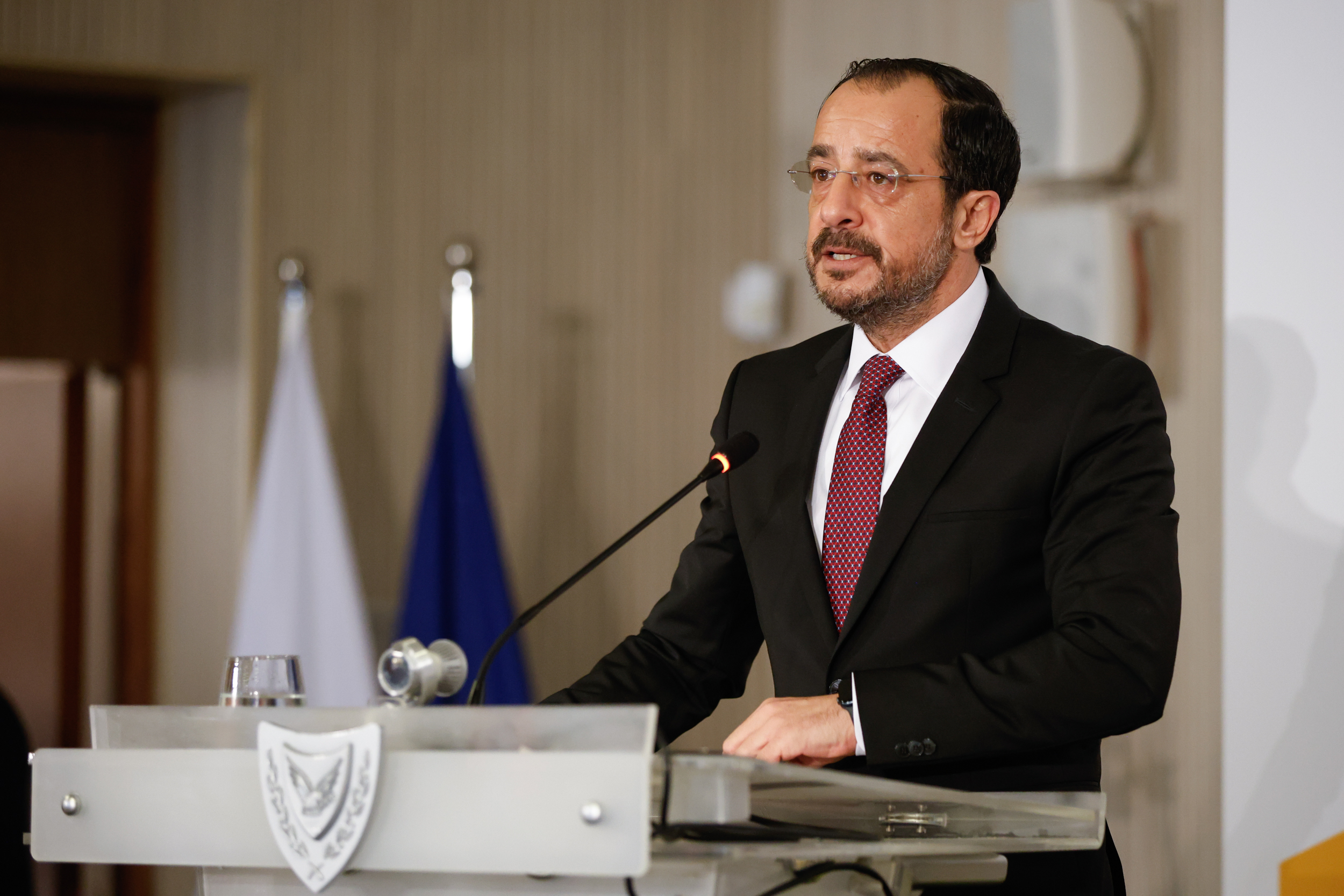Cyprus on Wednesday kicked off a core conference ahead of officially assuming the presidency of the Council of the European Union in January with topics such as defence, migration, energy, water resilience and affordable housing on the table, President Nikos Christodoulides said.
Christodoulides was speaking at the 743rd meeting of the Bureau of the European Economic and Social Committee (EESC) at the presidential palace in Nicosia.
The EESC describes itself as the voice of organised civil society in Europe and represents employers, workers and civil society organisations.
Wednesday’s conference is the first to take place in the context of the Cyprus’ presidency of the Council of the European Union marking the “beginning of our presidency journey”, Christodoulides said.
“At the verge of this defining moment for our country, this first event reflects the very principles that inspire and guide us on our presidency journey… cooperation, participation and dialogue,” he added.
Christodoulides gave special attention to the issue of water scarcity, something Cyprus has been struggling with over the past year or two as reservoirs levels fell to new lows.
He described water security as “an essential component of resilience and competitiveness”.
“Water scarcity is not only an environmental concern. It is also a social, economic and geopolitical one, the president said.
“It has far-reaching implications for sustainable development, food security and regional stability. As climate change intensifies and pressures on natural resources grow, coordinated European action becomes ever more essential.”
Cyprus, he added, was facing some of the most severe climate challenges, including drought. The EU presidency would therefore focus on the need for swift and coordinated action towards strengthening Europe’s water resilience and adaptation to water stress.
Deliberations in the Council, at both technical and ministerial level, would seek to advance discussions on the Water Resilience Strategy, contributing to the preparation of the new European Climate Adaptation Plan and to strengthening water preparedness across the EU.
“We need to support feasible innovative solutions to advance knowledge and expertise in water technologies and for this, cooperation between the EU and this neighbourhood is essential. Ensuring that no region, no community and no citizen is left behind in this effort.”
Beyond the crucial matter of water resilience, he said the EESC conference would guide policymakers on a number of other very important priority files for the presidency including strengthening economic cooperation in the Mediterranean region, tackling energy poverty through affordable housing, advancing island mainstreaming within European policies and enhancing social inclusion.
He said the work and engagement of the EESC symbolised the “indispensable dialogue” between the institutions, civil society and the business community across the EU, bringing the bloc “closer to its citizens” and ensuring it remains inclusive and forward-looking.
The palace meeting is set to discuss how to shape the policies that would will define a common future to include policies to better serve Europeans, and prepare for future challenges.
In addition to water issues, there will be discussions on defence and security, migration, and the protection of borders and energy.
“These are mutually reinforcing pillars of the same vision: a Europe that stands on its own feet – from security and defence, to trade, to energy,” he said.
Referring to Ukraine, Christodoulides said Cyprus’ unwavering support would continue, on all fronts as it continued to fight for its territorial integrity, and by extension, Europe’s.
“It is a litmus test for Europe’s security,” he added.
Christodoulides said another top priority for the Cyprus presidency would be “decisively advancing” the negotiations for a new Multiannual Financial Framework that will deliver strategic priorities.






Click here to change your cookie preferences